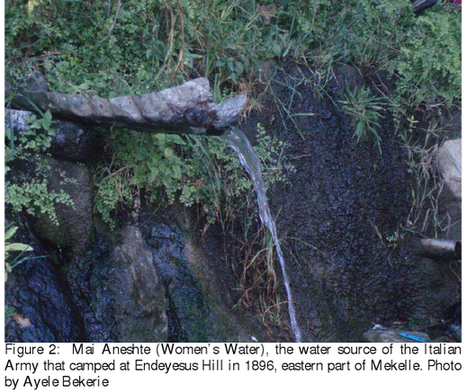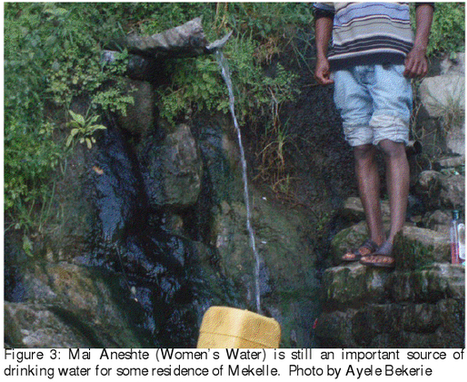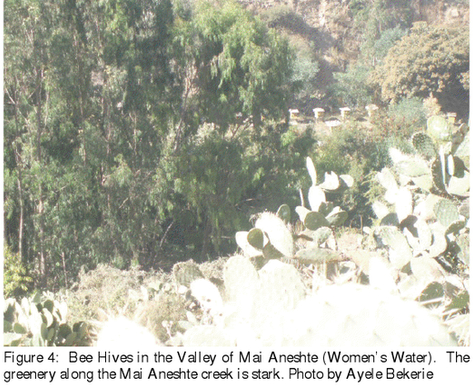Tadias Magazine
By Ayele Bekerie, PhD
Published: Friday, March 1st, 2013
Mekelle, Ethiopia (TADIAS) – In 1896, eleven years after the Berlin Conference, the Ethiopian army decisively defeated the Italian military at the Battle of Adwa. It was a resounding victory because it aborted Italia’s ambition to establish a colonial foothold in Ethiopia. On March 2, 1896, The New York Times reported with a headline: “Abyssinians Defeat Italians; Both Wings of [General] Baratieri’s Army Enveloped in an Energetic Attack.” On March 4, 1896, The New York Times featured another story about “Italy’s Terrible Defeat.” NYT also stated “three thousand men killed, sixty guns and all provisions lost.” It further indicated how high the defeat’s impact has reached by referring to the Pope who “is greatly disturbed by the news.” “The terrible defeat” sent shock waves throughout Europe and the colonized world. It was the first time that a non-white people had defeated a European power. According to Teshale Tibebu, the victory the Ethiopians had achieved over Italy was different than other battles won by African forces. This was permanent.
While Europeans saw the defeat as a real threat to their vast colonial empires in Africa, Asia, the Americas and the Caribbean, the colonized subjects in these territories understood the event as the beginning of the end of colonialism. Adwa as Davidson aptly puts it has become a prelude to decolonization in Africa. Clearly the victory at the Battle of Adwa lends itself to multiple meanings and interpretations, depending upon perspectives and stances in relation to colonialism. The purpose of this piece is to look into the interpretations of the event from the perspectives of the colonized and how the victory brought about the idea of global Ethiopia. It can be argued that the Battle has further enhanced the symbolic significance of Ethiopia in Africa, the Americas and the Caribbean. Ethiopia has become a symbol of the anti-colonial movements throughout the world. The Battle may have also given geographical and historical certitude to Ethiopia. The Battle of Adwa is another significant symbol in the imaginary of the idea of Ethiopia. This paper looks into the symbolic importance of Adwa in the conception and development of pan-African solidarity and identity.
Ethiopia at the time of the Battle was a highly traditional empire-state where kings and nobilities ruled over a predominantly agrarian people. Modes of rules were not only dictated by customs and personal whims, they were also exploitative. Adwa then ushered a new paradigm to alter or reform the tradition, to replace it with a modern system of centralized and unified government. While the symbolic significance of the Battle successfully echoed the call for freedom and independence and an end to colonial domination abroad, the full meanings of Adwa have yet to be fully realized within Ethiopia. Adwa suggests the power of indigenous multiple voices voluntarily cooperating to defeat and challenge the European colonial order.
Virtually all the regions, religions, linguistic groups, aristocrats and peasants pulled their resources together to formulate and execute a strategy of victory. By their actions the Ethiopians were not only affirming the power and immense possibilities of unity in diversity, but they were placing issues of freedom and internal reform at the top of the national agenda. Adwa necessitates a new set of directions interspersed with broader definition and application of freedom so that all those who participated in the Battle would be able to participate in the affairs of their country. As Maimre puts it, “from the perspectives of the thousands who participated in the campaign of Adwa, the resistance to the Italian invasion embodies the aspiration for freedom, equality and unity as well as the rejection of colonialism.”
Adwa reminds the Shoan nobility to let freedom ring from northern highlands to the rift valleys, the river basins, the plain lush fields of Arussi and the salty Danakil depressions. Adwa presents a unique opportunity to reconfigure the empire-state. Unfortunately, absolutism and imperial glory overshadowed and undermined the emancipatory route suggested by the historic event of Adwa. Adwa presses on the monarchy to modernize and to let the people involve in the political process through constitutional means. Unfortunately, the leaders resisted internal reform or introduced ineffective and nominal elements of modernity. Absolute monarchy, imitative and nominal modernization and detached and non-transformative tradition were pursued and, to this date, insist on clinging to the status quo. The status quo is the cause of immense poverty and disenfranchisement for the vast majority of the people in the country.
Adwa’s magnificent victory is a model in as far as people of various cultures, religions and languages willingness to assemble for a purpose. 100,000 Ethiopian troops took positions on the fields and mountains of Adwa to encircle and defeat the enemy. The multi-cultural army paid the ultimate sacrifice when about nine thousand of its soldiers died at the Battle. With their sacrifice, they set the stage for the birth of a new Ethiopia where the reach of freedom, politically and economically, would be more egalitarian. The model, unfortunately, was not pursued in post-Adwa Ethiopia. The model of voluntary cooperation and coexistence has yet to be implemented in the twenty first century Ethiopia. The model has yet to break the cycle of poverty and endless violent conflicts in the Horn of Africa.
While the victory is certainly a major milestone in Ethiopian history, Menelik and his successors failed to fully appreciate and adopt the new reality that emerged (locally and internationally) as a consequence of the victory. The meaning and reach of freedom hampered by intolerance to internal criticism and resistance to reform the monarchy. Internationally, most historians agree that Adwa opened the way for the ultimate demise of colonialism in Africa and elsewhere.
Adwa is significant because it disturbed the colonial order in the world. Colonial subjects interpreted Adwa as a call to resist and defeat colonialism and racial oppressions through out the world. With Adwa, they have a permanent symbol and a constant reminder that colonialism was wrong and it ought to be defeated. No system is just in as long as it treats human beings as objects and fodders to exploitative and profitable economic systems. Citizen subject is a right that cannot be denied and that should be exercised if at all freedom is a universal right of peoples and communities. Adwa, to most historians, is an African victory. The 1884-85 Berlin Conference was convened to divide up the entire continent of Africa and assign colonial territories to European powers. The Europeans allocated the Horn of Africa to Italy. Italy’s unsuccessful military push in Ethiopia was a part of the European colonial order in Africa.
In preparation for this essay, I conducted field and library research in Ethiopia and abroad. I visited the town of Adwa in September 2006 and March 2012. Adwa is only 25 miles west of the ancient city of Aksum. I made the journey to Adwa in search of memorial markings, to participate in the 116th Battle of Adwa Anniversary, to pay tribute to the war heroes and heroines, to converse with residents and to visit relevant institutions and museums. The Battle of Adwa is known locally as 1886, the Ethiopian calendar year for 1896.
I also had a chance to examine archival documents in the Institute of Ethiopian Studies at Addis Ababa University and the National Archive in Addis Ababa, Ethiopia. The National Archive has, among other books, manuscripts and papers written in local languages and scripts, a rich collection of documents encompassing the 18th, 19th and early 20th centuries of the Common Era in Ethiopian history. I particularly read and copied relevant documents from the archival collections of Belata Mersea Hazen Wolde Qirqos, Doctor Dejazemach Zewde Gebre Selassie, Dejazemach Kebede Tessema, and Aleqa Taye Gebre Mariam. Recent publications of memoirs in Amharic by former palace officials or associates, such as Fitawrari Tekle Hawariat Tekle Mariam and Dejazemach Zewde Retta, have also helped a great deal to elucidate historic events. Tsehafe Tezaz Gebre Selassie’s Tarike Zemen Ze Dagmawi Menelik Neguse Negest Ze Ethiopia (Historical Period of Emperor Menelik II of Ethiopia) is a useful source of the Battle. Gebre Selassie served as a personal chronicler of the Emperor.
The collection donated to the National Archive by Belata Merse Hazen Wolde Qirqos includes a critical essay entitled Atse Menelikena Ethiopia (Emperor Menelik and Ethiopia) written by a great Ethiopian scholar, Gebre Hiwot Baykedagn. His essay criticizes Ethiopian historians for failing to engage in critical interpretations of the past. He also points out the achievements and failures of Emperor Menelik II. Another scholar who was trained in Europe, Afeworq Gebreyesus wrote the biography of Emperor Menelik. The work is regarded as serious and fruitful. Gebre Hiwot Baykedagn criticizes the book for lack of balance in the appraisal of the leadership of Emperor Yohannes II in comparison to Emperor Menelik. In addition, almost ten years ago, I participated in a book project to celebrate the centennial anniversary of the Battle of Adwa. The book, One House: The Battle of Adwa 1896-100 Years, edited by Pamela S, Brown and Fasil Yirgu, has contributors, such as the Late Laureate Tsegaye Gebre Medhin, Richard Pankhurst, and Teshale Tibebu. My contribution is entitled “How Africa Defeated Europe.”
Menelik’s (Abba Dagnew) success at the Battle of Adwa may be attributed to the following factors: One, he surrounded himself with great advisors, such as Empress Taitu Bitul, Fitawarari Habte Giorgis Dinegde (Abba Mechal) and Ras Mekonnen, a nephew and father of Emperor Haile Selassie.
Menelik was a popular leader, skillful diplomat, and good listener. Menelik believed in reconciliation. Those who revolted against him once defeated they were immediately pardoned and allowed, unfortunately, to retain their original privileged position. Menelik was keenly aware of the colonial expansionist ambition of the French, British and Italians in the region. As a result, he actively sought and acquired modern weapons from Europe. He even bought a large quantity of weapons from the Italians. He also fully exploited the rivalries among the three colonizers. More importantly, out of a long war experience, together with his ministers, regional kings, he developed a winning war plan.
Menelik’s war declaration was widely heeded and welcomed throughout the country, a clear affirmation of his popularity. Menelik’s declaration is an important literary document in the context of preparation, the will to fight and become victorious at the Battle of Adwa. Menelik appealed to love of family, religion and country. He reminded Ethiopians that the intention of the enemy is to take away the core values and traditions cherished by the people. Menelik declared (translation mine):
“Up until now, through the grace of God, who permitted me to live by destroying my enemies and expanding the territorial boundaries of our country. It is also through the grace of God that I am ruling. Therefore, I have no fear of death. More importantly, God has never let me down and I am confident that he will let me be victorious again.”
“At this time, another enemy has entered our territory by crossing our God given sea. His objective is to destroy the country and to change the religion. As a result of a major cattle disease that devastated a large number of our livestock and brought great sufferings to our farmers and pastoralists in the last few years, I remained quiet and patient to numerous hostile provocations. And yet the enemy continued to dig dipper in the ground like a hog.”
“Now God willing or with God’s help, I will not surrender my country. My fellow country folks, I do not believe that I disappointed you in the past. You have not also disappointed me. If you are strong, then help me with your strength to fight the enemy. If you are not strong, I seek your moral support for the sake of your children, wife and religion. If, on the other hand, you seek lame excuse not to join the national campaign against our enemy, I will be upset and I will not have mercy on you, I will punish you. My campaign begins in October, and I expect volunteers from Shoa to gather in Woreilu by mid October.”
—
This article is well-referenced and those who seek the references should contact Professor Ayele Bekerie directly at: abekerie@gmail.com.
About the Author:
Ayele Bekerie is an Associate Professor at the Department of History and Cultural Studies at Mekelle University.
Related:
The 1896 Battle of Adwa: Empress Taitu Bitul, The Visionary Co-Leader
Call for the Registry of Adwa as UNESCO World Heritage Site (Tadias)
—
Join the conversation on Twitter and Facebook



